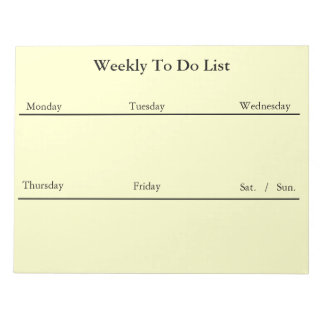Below are a few suggestions that may help:
- There is no such thing as a perfect caregiver. First of all, we are flawed human beings.Our care receivers are also flawed human beings who are likely unhappy about life events that have put them in a vulnerable position. Their wants and needs are ever-changing. We can't be expected to know what to do at every turn to make their lives better when often they don't know themselves
- When we forgive, we heal. Often, it's ourselves we need to forgive – for thinking we should be perfect when we're not. However, even if our care receiver or a friend is basically at fault, we are still the biggest beneficiary of our forgiveness. Doing so frees us from building up resentment about others which is basically self-punishment. We obsess about the negative rather than move forward with a positive attitude.
- Guilt is counterproductive. Yes, occasionally there's a valid reason to feel guilty. If so, do what you need to do to make amends for what was done. However, most of the time the guilt is unearned. Carrying around unearned guilt can make us cranky – or worse. This, in turn, can't help but affect our caregiving. Do your best to stop feeling guilty. It won't help a thing.
- Apologizing takes courage. As noted above, if you have behaved in a fashion that is hurtful to your care receiver or others, an apology is in order. Strong people can admit when they're wrong. An apology should be followed by an attempt to mend the behavior that brought about the problem. If there's no attempt to improve, then "I'm sorry" has little meaning.
- Cheating ourselves hurts the care receiver. Caregivers, being human, can go only so long without at least some self-fulfillment and quality of life. Otherwise resentment is bound to set in. Once a caregiver resents the care receiver, the care receiver will nearly always sense the discontent and may feel that he or she is to blame. Therefore, for the sake of the caregiver and the care receiver, caregivers must find ways to take care of some of their own needs. Yes, it's hard to find the time, but it's important.
- Our parents are always our parents. No matter how helpless our parents become, they are not our children. Bodies may fail. Minds may deteriorate. Neither of these conditions erases the legacy of the elder's life. Treating an elder with dignity will, in the end, help the caregiver as well as the care receiver if only because the elder will likely sense the respect and try to live up to it.
- Express your feelings appropriately. Understand that ignoring your feelings is an unhealthy coping mechanism. You have a right to set boundaries. You have a right to refuse to accept abuse. You have a right to time for yourself. There are ways to appropriately make these rights known if you feel that others have lost sight of your rights. However a screaming match with your elder or your siblings is not likely to be helpful. Try to express your needs in a way that leads to compromise and healing. If you need help with this, a social worker, a spiritual leader, a counselor or even a family mediator can be called upon, depending on the severity of the circumstances.
- Accept what you can't change. Your parent's dementia, your husband's stroke, your own diabetes – you can't change the fact that these illnesses are real. Once you accept that basic fact progress can be made in learning how to cope. Acceptance of what has happened or is happening doesn't mean that you like it. It simple means that you acknowledge your situation. Acceptance allows you to move forward.
- Self-pity can be often healed by gratitude. Yes, caregivers often have legitimate reasons to feel sorry for themselves and some self-pity can be okay for a limited time. Again, we are only human, but when self-pity becomes obsessive it simply keeps us stuck in a negative frame of mind which hurts us more than anyone else. One way to pull out of self-pity is to write a list of everything you have to feel grateful for even if it's just that you can stay warm this winter. If you let it, gratitude can change your life. It takes some discipline to even want to pull out of the quicksand of self pity because sometimes that frame of mind can seem comfortable. However, once you begin to see what you have to be grateful for, you will likely find yourself slowly becoming happier. That, in turn, could make your care receiver happier, which will continue to cycle back to you.
- Seek education. You can learn more about your care receiver's main issues, such as Alzheimer's disease or diabetes, though organizations devoted to those diseases. There are rich resources online and many communities have local organizations that can help. You can learn about caregiving in general through social service organizations and websites such as agingcare.
- Connect with other caregivers.The Internet is a blessing for caregivers, not only because of the information that can be found, but because of the friendships that can be formed through online communities. In person support is also important, so many people find community support groups to attend.
- Give other caregivers a break. Every situation is unique, so we aren't in a position to criticize the decisions other caregivers make, nor should we take seriously criticism aimed at us. Unless there is actual abuse or complete ignorance, we should give others a pass. If they ask your advice, of course, give it. Gently, lovingly share what you know works in your situation without telling them they should follow your example.
- Love hurts, but where would you be without it? If you didn't love you wouldn't feel emotional pain over the cognitive and/or physical decline of your parents, your spouse or another person that you care for. Yet, would you give up the history you have with the person you love? Pain is part of living just as death is part of life. Pain happens because, as human beings, we have the capability to love others deeply.
- You're not alone. The spiritual side of my life has kept me going during some very bleak times, and I hear from many readers who agree with that philosophy. However, anyone – with or without a spiritual connection – will likely feel better if they open their eyes to the world outside their door. There are people struggling with all kinds of issues, yet they manage to at least send a smile in the direction of a new neighbor, a plate of cookies to someone just home from surgery or a card with encouragement to a friend who is ill. Looking beyond ourselves can remind us that most of us are simply trying to live our lives the best we can.
 Dementia Signage for the Home
Dementia Signage for the Home
______________________________
Dementia Signage for the Home
$22.75 - EZ-C Bright Green 3 Ring Binder






No comments:
Post a Comment